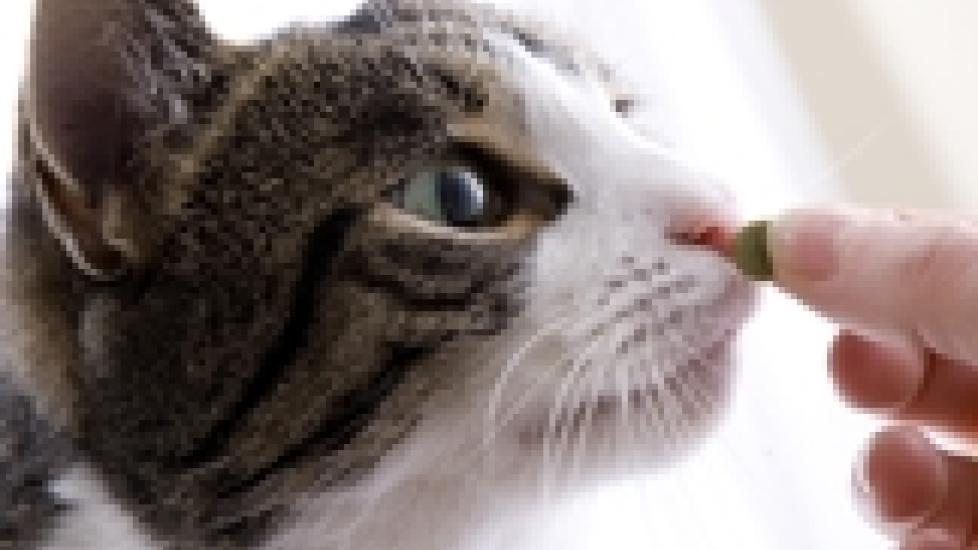The Right Foods for Cats with Cancer
Taking care of a cat with cancer is hard enough, but when his or her appetite begins to wane, questions about quality of life soon follow. Watching a sick cat’s food intake is very important for two reasons:
- Cats will often lose their appetite when they don’t feel well, so food intake can be used as a quality of life indicator.
- Good nutrition is never more important than when a cat is battling cancer.
The first step in improving a cancer patient’s appetite is to try to identify anything “fixable” that might be adversely affecting a cat’s willingness or ability to eat. Is the cat on any medication that could be depressing her appetite? Is discontinuing it or switching to another drug possible? Are there palliative treatment options (pain relief, surgery, radiation therapy) that could improve the cat’s appetite even if they aren’t expected to be curative? Is a feeding tube a reasonable choice?
The next question that arises is, “What’s the optimal diet for a feline cancer patient?” Cancerous cells alter the body’s metabolism. They metabolize glucose and make lactate that the body then tries to convert back into glucose. This takes energy away from the cat and gives it to the cancer. Cancers also convert amino acids, the building blocks of protein, into energy causing muscle wasting, poor immune function, and slow healing. On the other hand, cancerous cells do not appear to be very efficient at using fat as an energy source.
Based on these metabolic changes, many veterinarians recommend feeding feline cancer patients diets that are relatively low in carbohydrates (particularly simple carbohydrates) and high in protein and fat. It is important that all the ingredients used to make the cat’s food be highly digestible and absorbable. Just enough fiber should be included to maintain normal bowel function without significantly “diluting” the food. Omega-3 fatty acids are often added to these diets because they are a good source of fat and calories and may have “anti-cancer” effects.
In all honesty, there hasn’t been a lot of research into whether or not these types of diets actually improve outcomes in cats. The study that is most often cited was done in dogs with lymphoma, and while the results were positive, who’s to say that a similar diet would have the same effect with a different type of cancer and/or in a different species.
I don’t worry too much about this, though, since a diet that is low in carbs and high in protein and fat is appropriate for any cat that is eating poorly and at risk for the adverse effects of unwanted weight loss.
Commercially prepared foods are widely available that fit these parameters. Canned varieties are best, but dry is an option if that is what a cat prefers (now is not the time to force a diet change!). Veterinary nutritionists, for example those who are available through BalanceIt.com and Petdiets.com, can also design recipes for home prepared foods that meet the special needs of feline cancer patients.

Dr. Jennifer Coates
Image: Anthony Bolan / Shutterstock
